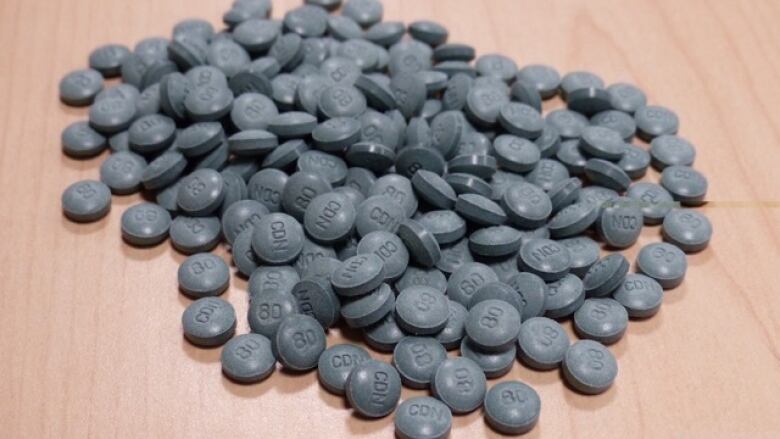Opioid treatment to be overhauled by Vancouver Coastal Health
New strategy includes new drugs, more post-detox services

Vancouver Coastal Health rolled out a new approach to opioid addiction today in the face of challenges with the methadone system, and the growing problem of fentanyl and other illict drug overdoses.
Dr. Evan Wood, the medical director of community addiction services for Vancouver Coastal Health, Stephen Quinn on The Early Edition that one of the biggest changes will be that methadone will no longer be the first choice for those seeking treatment for their addictions instead, it will be a drug called Suboxone.
"Suboxone is an interesting medication in that it's a partial opioid agonist," he said. "Unlike heroin or methadone, it goes to the opioid receptor in the brain and blocks other opioids from activating those receptors, but itself is not a full receptor. So it's much less likely to cause a fatal overdose."
Dr. Wood also said that unlike methadone, Suboxone doesn't require a patient to go to a pharmacy every day for use, and can be taken at home.
- PharmaNet data used to crack down on opioid overprescription
- Overprescription of opioids linked to overdose deaths in B.C.
- Fentanyl rise in B.C. linked to opioid clampdown, say health officials
Another part of the new approach is a review of detox services available which, saysDr. Wood, have been criticized for poor continuity of care.
"So someone goes through detox, their tolerance to opioids is decreased, and that can result in a catastrophic outcome in terms of a fatal overdose if someone relapses," he said. "So the guidelines make a very forceful recommendation against 'detox only' as a strategy."
"If someone wants off opioids altogether, The health care system really needs to come up with a strategy for ongoing addiction care so they can be closely monitored."
Dr. Wood says it's his hope that VCH will have a new system of addiction treatment by this time next year.
Mother, who lost son, applauds changes
One person who is applauding the new strategy is Pender Island resident Leslie McBain. She lost her 25-year-old son, Jordan, to a multiple drug overdose last February.
He got a back injury at work, and a doctor prescribed oxycodone for him.
"By the time he realized and we realized the extent of it, he was very firmly ensconced in that addiction," McBain told On The Coast's Gloria Macarenko. "The doctor basically cut him off, he said 'I'm going to have nothing more to do with you.'"
She said that Jordan went into detox, came out clean, but then couldn't find support or counselling for him afterwards.
She saysJordan relapsed about three months after detox, and then died of an overdose of several prescription drugs.
McBain says she's hopeful the new guidelines will prevent other parents from being in her situation.
"Everything that's laid out in these guidelines is something he could have benefited from," she said. "At least there's counselling and support and just a general watching of the person until they're well. We could find none of that at the time."
To hear the interview with Dr. Evan Wood, click on the audio labelled: Dr. Evan Wood on new opioid strategy
To hear the interview withLeslieMcBain, click on the audio labelled:LeslieMcBain on losing her son to opioid addiction












_(720p).jpg)


 OFFICIAL HD MUSIC VIDEO.jpg)
.jpg)



























































































